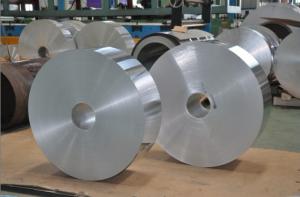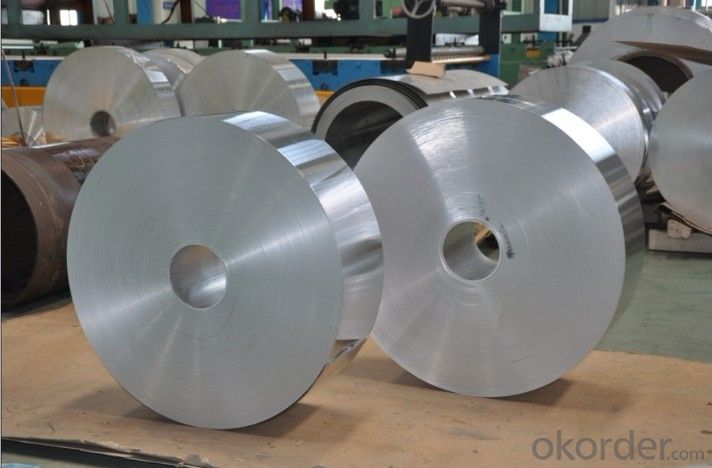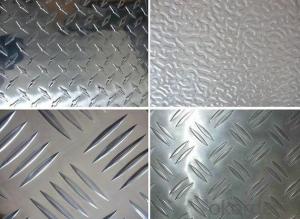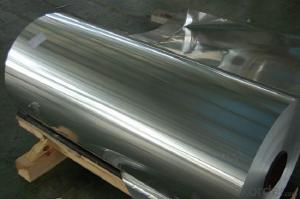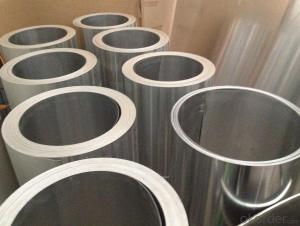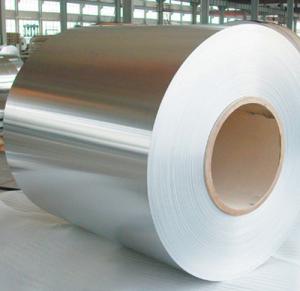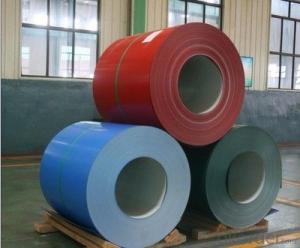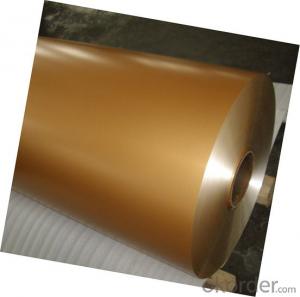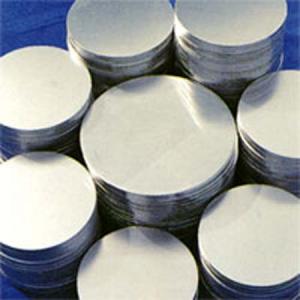Custom Mill Finished Aluminum Coil and Sheet from China
- Loading Port:
- Shanghai
- Payment Terms:
- TT or LC
- Min Order Qty:
- 5 m.t.
- Supply Capability:
- 9000 m.t./month
OKorder Service Pledge
OKorder Financial Service
You Might Also Like
Specifications
1)0.02mm-200mm aluminum sheet,coil,foil,circle
2)mill finish mirror finish
3)process: CC&DC
4)paper interleave & PVC Film
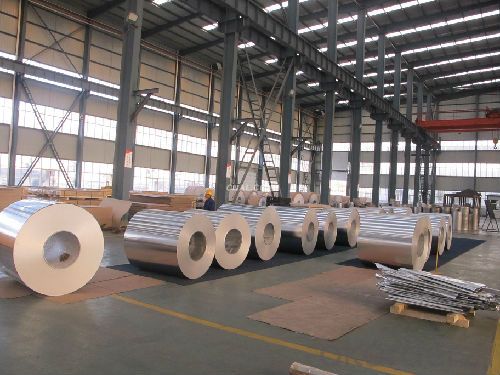
product | thickness | alloy | temper | |
aluminium sheet,coil,foil, circle,strip | 0.16-200mm | 1070 1060 1050 1145 1235 1100 1200 3003 8011 3005 5005 3105 | H18 H26 H14 H24 H22 O | |
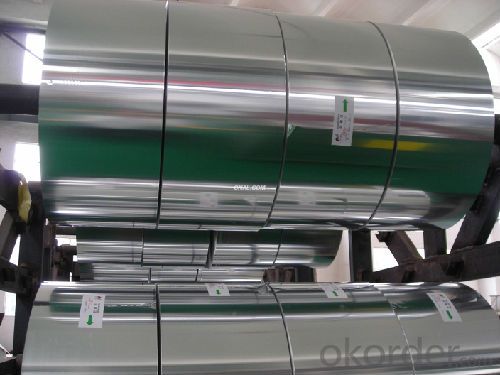
Our Services
Why Chose us?
Factory | We are a factory manufacturing aluminum coil, sheets, foil. strip, circle, ACP and coated coil. We have best production capability, best quality control, best Service. |
24-hours working | Contact line is 24-hours available for your any question before sales and after sales. |
Flexible MOQ | Any quantity is available if we have your specification in stock. |
Shipping company | Introduce to you our good partner--experienced shipping company with competitive price |
OEM service: | Accept your own design |
Strict Quality Controlling | CE/ISO/IAF/SGS listed |
Trade assurance service | We are Alibaba Assessed years Gold Supplier and suppport trade assurance service. |
Free Sample | We supply sample for free. |
Shipping company | Introduce you our good partner--experienced shipping company with competitive price |
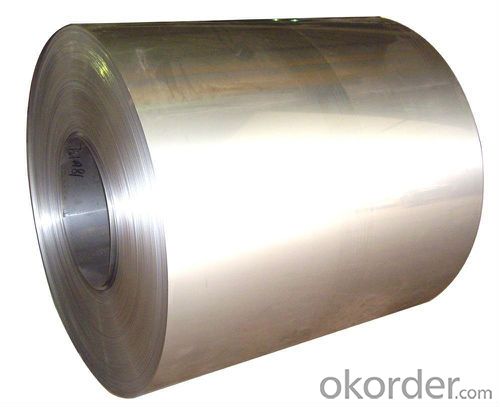
- Q: This question asks for methods to determine the age of an aluminum coil, distinguishing between new and old.
- <p>To determine if an aluminum coil is new or old, you can look for several indicators: the surface condition, such as scratches or signs of wear; the quality of the protective coating, if any, which may degrade over time; the manufacturing date or batch number, if available; and the overall appearance and shine. New coils typically have a smooth, shiny surface with no significant scratches or dents, and a consistent protective coating. Old coils may show signs of oxidation, discoloration, or other forms of degradation. Additionally, testing the coil's physical properties, such as tensile strength, can provide clues about its age, as these properties can degrade over time.</p>
- Q: Aluminum coil Kaiping is out of arc plate, what's the matter?
- Aluminum coil Kaiping need to use "stretch bending straightening machine" to do leveling, before they can be leveled
- Q: How do aluminum coils contribute to energy savings in buildings?
- Aluminum coils contribute to energy savings in buildings by enhancing the efficiency of heating, ventilation, and air conditioning (HVAC) systems. These coils are commonly used in HVAC units as they have excellent heat transfer properties, allowing for effective heat exchange. As a result, the HVAC system can cool or heat the building more efficiently, reducing the energy consumption required to maintain comfortable indoor temperatures. Additionally, aluminum coils are lightweight and durable, which helps to prolong the lifespan of the HVAC system, reducing the need for frequent replacements and further conserving energy.
- Q: The user is asking if it's possible to use a punching machine to create holes in aluminum coils.
- <p>Yes, you can use a punching machine to punch holes in aluminum coils. Punching machines are designed to cut or create holes in various materials, including metals like aluminum. However, the type of punching machine and the specific settings will depend on the thickness and hardness of the aluminum coils. For thicker or harder aluminum, a more robust machine with appropriate dies may be necessary. Ensure that the machine is capable of handling the material's properties to avoid damage or inefficiencies in the punching process.</p>
- Q: How many atoms are there in a piece of aluminum foil, 7.3 inches in length and 12.0 inches in width, and 0.141 mm thick? According to this problem, aluminum foil is a flat-rolled product, rectangular in cross section, of thickness from 0.006(0.15mm) to 0.00025(0.006mm). The density of Al is 2.699 g/cm3.
- the nice and cozy button is Avogadro' sort that's 6.0226 x 10^23 atoms consistent with mole So if the cost of the Al roll is $2.fifty two for one lb Then proceed as follows: a million lb = 454 gms At Wt Al = 26.ninety 8 gms consistent with mole Moles of Al in a million lb = 454/26.ninety 8 = sixteen.80 two moles sort of atms of Al = sixteen.80 two x 6.0226 x 10^23 = a million.013 x 10^25 cost consistent with atom = $2.fifty two / a million.013 x 10^25 = $2.2847 x 10^-25 consistent with atom or 0.0000000000000000000000228 cents consistent with atom. BTW, you probably did no longer finished specify the situation - how thick is teh Al foil? In any journey Al atoms are enormously inexpensive. desire this helps
- Q: What are the common surface repair methods for aluminum coils?
- There are several common surface repair methods for aluminum coils. One of the most common methods is mechanical repair, which involves sanding or grinding the damaged area to remove any corrosion or imperfections. This is typically followed by using a filler or putty to smooth out the surface and create a seamless repair. Once the filler has dried, the repaired area can be sanded again to ensure a smooth finish. Another common method is chemical repair, which involves using specialized chemicals to remove oxidation or corrosion from the surface of the aluminum coil. This can be done by applying the chemical directly to the damaged area and allowing it to react with the surface, breaking down any corrosion or oxidation. Once the chemical has done its job, the coil can be rinsed and dried, and any remaining imperfections can be addressed with mechanical repair methods. In some cases, heat repair methods can be used to repair aluminum coils. This involves using a heat gun or torch to heat the damaged area, allowing the aluminum to become soft and pliable. Once the metal is heated, it can be reshaped or manipulated to remove any dents or deformations. This method requires careful control of the heat to avoid damaging the coil further. Lastly, anodizing is a common surface repair method for aluminum coils. Anodizing involves applying a protective coating to the surface of the coil, which not only repairs any damage but also provides added protection against future corrosion or oxidation. This method is often used for more extensive repairs or when the coil is exposed to harsh environments. Overall, the choice of surface repair method for aluminum coils depends on the extent of the damage and the desired outcome. It is always recommended to consult with a professional or follow manufacturer's guidelines to ensure the best results and prolong the lifespan of the coil.
- Q: Can aluminum coils be used for automotive body panels?
- Yes, aluminum coils can be used for automotive body panels. In fact, aluminum is a popular choice for car manufacturers due to its lightweight and corrosion-resistant properties, leading to improved fuel efficiency and longevity of the vehicle.
- Q: Can aluminum coils be used in power generation facilities?
- Aluminum coils are indeed suitable for use in power generation facilities. Aluminum, being a highly conductive material, offers numerous benefits for power generation applications. Its exceptional thermal conductivity allows for efficient heat transfer from the coils, a critical factor in cooling systems within power generation facilities. Moreover, aluminum's lightweight nature simplifies handling and installation, setting it apart from metals such as copper. This lightweight attribute also contributes to cost savings by reducing overall equipment weight. Additionally, aluminum's corrosion resistance is particularly valuable in power generation facilities, which frequently operate in challenging environments. In conclusion, considering their conductivity, thermal efficiency, lightweight nature, and corrosion resistance, aluminum coils present a feasible choice for power generation facilities.
- Q: I know when you stick weld aluminum you're more brazing than actually welding but i was just wondering about this, i want some electrodes just in case i need a temporary repair. Also what Amperage should i run it at,and what polarity?? my friend told me to run hotter than usual but hes only 14, and I dont know how reliable he is. Im 14 by the way also and have been welding for two years now and im always out running around the ranch doing small repairs. thanks ahead of time!
- you okorder /... heres some stuff you can buy online
- Q: This question asks for methods to clean an aluminum coil, which involves understanding the appropriate cleaning materials and techniques to avoid damaging the aluminum.
- <p>To clean an aluminum coil, start by using a soft cloth or sponge dampened with warm water and mild dish soap. Gently wipe the coil to remove dirt and grime. Avoid abrasive materials or harsh chemicals that could scratch the surface. After cleaning, rinse the coil thoroughly with clean water to remove any soap residue. Dry the coil completely to prevent water spots or corrosion. For stubborn stains, consider using a specialized aluminum cleaner, but always follow the manufacturer's instructions and test on a small area first.</p>
Send your message to us
Custom Mill Finished Aluminum Coil and Sheet from China
- Loading Port:
- Shanghai
- Payment Terms:
- TT or LC
- Min Order Qty:
- 5 m.t.
- Supply Capability:
- 9000 m.t./month
OKorder Service Pledge
OKorder Financial Service
Similar products
Hot products
Hot Searches
Related keywords
